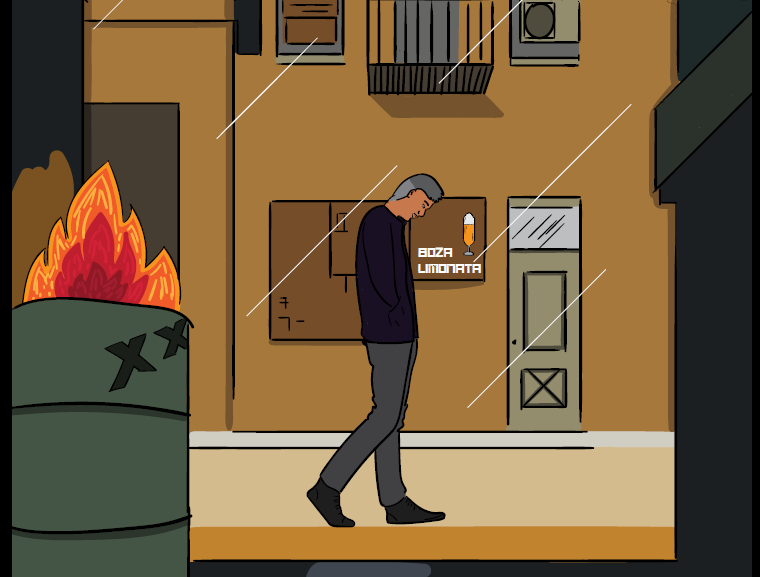
The Language of Arnautistan
by Artrit Bytyçi
In my early drafts in 2013, when I was still writing Arnautistan Noir as a novel, I did so initially in Albanian. But soon I realized I wanted it to sound like the language which would have evolved in the Confederation I had imagined, the way it would have sounded if Prizren became the capital of the Arnautistan statelet. And so, I injected an unusually large number of Turkish-sounding words into the Albanian text. I figured if other writers could use Dothraki or Klingon or whatever other made-up language for their fictional universes, I may as well do something similar. My initial plan was to write an entire novel in this newly conceived Arnautistan language.
People in Prizren, in real life, speak a specific language — either pidgin or creole, we will leave this classification to the linguists — that mixes Turkish, Albanian, Serbian-Bosnian-Croatian, and lately increasingly more English. It is technically an evolved remnant of an old imperial language. This made Prizren perfectly suited as the place where this language would have evolved in this imaginary Arnautistan. And all I had to do was to evolve it a bit further until it properly conveyed the overall art concept I was trying to achieve.
But soon I realized that inventing a new language might not be feasible. I wanted people to understand and actually read my novel, rather than spend time trying to decipher the language. I wanted it to appeal to a wide audience, rather than just a handful of linguists. I wanted the people to enjoy the story, rather than get caught up in analyzing the concept. Above all, I wanted to widen my potential audience. The solution was simple: write it in English.
But this was neither the first nor the last change to the project. Once English was sprinkled with an occasional word of Albanian or Turkish or Prizrenglish, I began experimenting with changing the mediums. Throughout the years it went from a novel to a short story, a movie script, a teleplay for the first season of a TV show, et cetera.
Enter Lumbardhi Foundation’s QARK Fellowship, and our decision to create a graphic novel/serialized comic book.
In this way, as a final product, we bring you two separate publications, one in English and the other one in Albanian. I wish I was as good of a translator so I could’ve written a faithful translation for both of them. Therefore, in each of the versions, you will find small differences, mostly in the connotation of different words. For example, in English, the language used in world-building may be clearer and seems to give off more of a Hollywood movie vibe.
On the other hand, in the Albanian version, each character has their own distinct way of speaking. They all use different speech registers, dialects, and accents: Aristocrats speak somewhat closer to the southern Albanian Tosk dialect. The locals speak a version of the Ghegh dialect and/or Prizren-speak. Based on the nuances of their language, you could tell if a character has grown up in the city or if they are a newcomer. Here the curses in Albanian pack more punch and the Turkish words can seamlessly be weaved in to give the illusion of a distinctly evolved Arnautistan dialect (which, in truth, is just an imitation of the Prizren dialect).
The Albanian version of the publication also uses language that highlights the cultural and ethnic diversity of Prizren. You could notice this in more than one character. But this is not such an easy thing to achieve. Even when intending to pay homage, it could very easily backfire, accidentally creating a minstrel character instead.
But the important thing here is to acknowledge the linguistic and cultural diversity of a place like Prizren, which gives someone like me the ability to imagine an entire alternate reality universe.
Amidst all those different languages, there is one that can bring us all together and make us understand each other better. And, as cheesy as it may sound, that language is science fiction. It is the closest thing we have to a universal language that has the power not only to help us know each other but also, perhaps, just as importantly, to know ourselves.